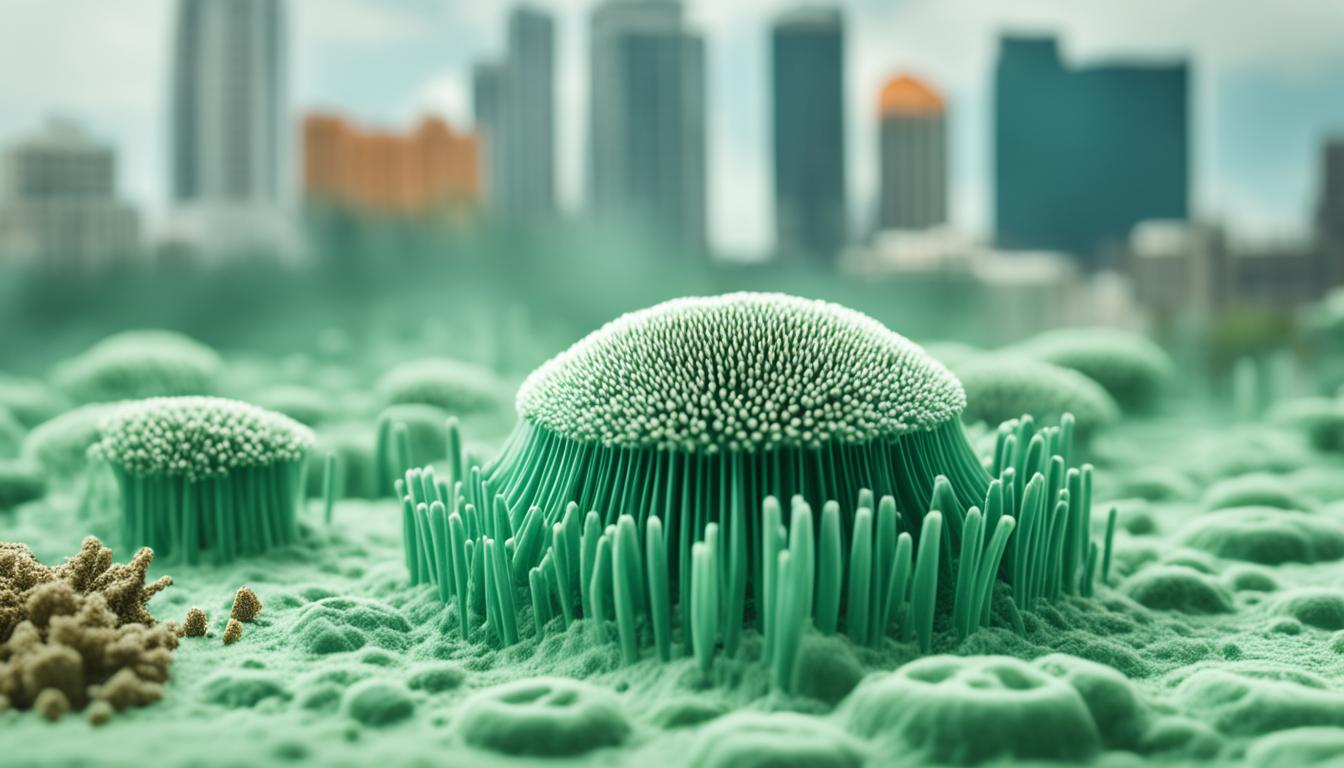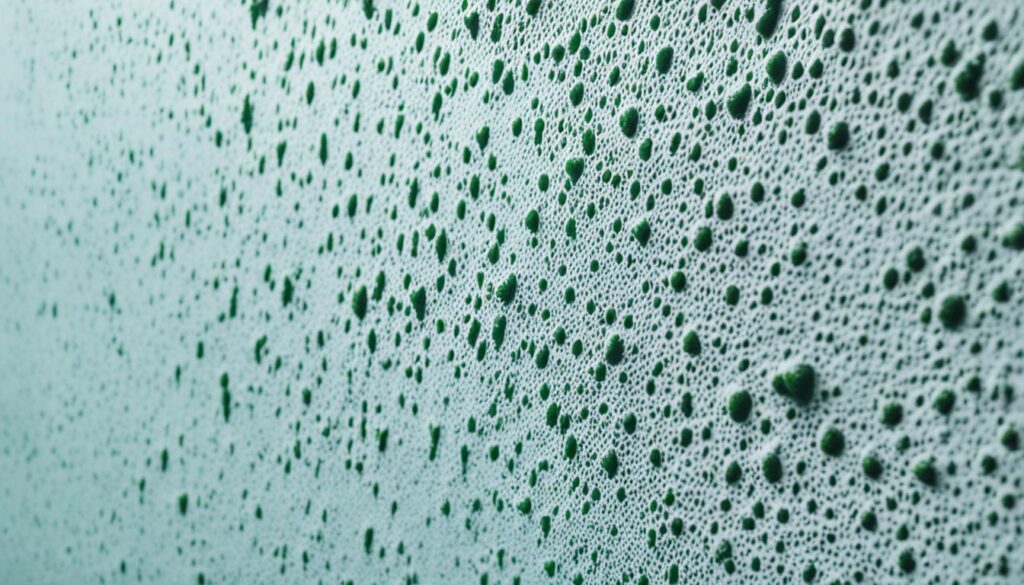
Mold Spores in House Miami: Remediation Tips
Welcome to our informative guide on mold spores in your house in Miami and effective remediation tips. Mold spores can be a common issue in many homes and can lead to various health problems if not addressed promptly. In this article, we will provide you with expert advice on identifying mold spores, understanding their potential hazards, and implementing effective remediation techniques.
Mold spores are microscopic particles that can spread through the air and thrive in damp and humid environments. They can easily enter your home through windows, doors, or by attaching themselves to clothing or pets. Once inside, they can settle on various surfaces and start growing, resulting in mold infestation.
In Miami, where the climate is warm and humid, it is essential to take proactive measures to prevent and eliminate mold spores in your home. By following the remediation tips we will discuss, you can create a healthier living environment for you and your family.
To give you a glimpse of what you can expect from this article, below are some key takeaways:
Key Takeaways:
- Understanding the presence and potential health hazards of mold spores in your Miami home.
- Identifying common areas where mold spores are likely to thrive.
- Implementing effective mold spore remediation techniques step by step.
- Preventing mold spore recurrence through proper maintenance.
- Seeking professional assistance for a thorough mold assessment and remediation.
Understanding Mold Spores in Your Miami Home
When it comes to maintaining a healthy living environment in your Miami home, understanding the presence and behavior of mold spores is crucial. Mold spores are microscopic particles that can cause a range of health hazards if left unaddressed. By gaining in-depth knowledge about mold spores, their spread, and common areas of occurrence, you can effectively mitigate their impact and ensure the well-being of your household.
The Potential Health Hazards of Mold Spores
Mold spores can trigger allergic reactions, asthma attacks, and respiratory infections in individuals who are sensitive or have compromised immune systems. Prolonged exposure to mold spores may lead to chronic health conditions, making it important to take immediate action when detecting their presence in your Miami home.
Spreading Mechanisms of Mold Spores
Mold spores have the ability to travel through the air, allowing them to spread easily from one area to another. They can be brought into your home through open windows, doors, or by attaching to clothing and pets. Additionally, mold spores can enter your home through ventilation systems or on contaminated objects. Understanding how mold spores spread will help you adopt preventive measures and combat their presence effectively.
Common Areas Where Mold Spores are Found
Mold spores thrive in damp and humid environments, making certain areas in your Miami home more prone to their growth. Bathrooms, kitchens, basements, and areas with water leaks are common hotspots for mold spores. Other susceptible areas include poorly ventilated spaces, such as closets and attics. By paying extra attention to these areas, you can identify potential mold infestations and take proactive measures to prevent their proliferation.
To further enhance your understanding of mold spores and their impact on your Miami home, check out this informative image:
“Mold spores can be invisible to the naked eye, but their effects on indoor air quality should not be underestimated. By staying informed and taking preventive measures, you can ensure a healthy living environment for you and your family.” – Expert Mold Remediation Specialist
Effective Mold Spore Remediation Techniques for Miami Homes
When it comes to mold spore remediation in your Miami home, it’s essential to employ effective techniques that will not only remove the existing mold but also prevent its recurrence. Here, we will guide you through step-by-step guidelines to identify and remove mold, along with valuable tips to mitigate further growth.
Step 1: Identify the Mold Source
The first and most crucial step in mold remediation is identifying the source of the mold. Conduct a thorough inspection of your Miami home to pinpoint areas with visible mold growth or signs of moisture accumulation. Pay close attention to damp spaces such as bathrooms, kitchens, basements, and areas near leaky windows or pipes. It’s also essential to check hidden areas like behind walls or under carpets.
Step 2: Remove Mold Safely
Once you’ve identified the mold-infested areas, it’s time to remove the mold safely to prevent further contamination. We recommend the following techniques:
- Wear protective gear, including gloves, goggles, and a mask, to safeguard yourself from exposure to mold spores.
- Seal off the affected area with plastic sheets to prevent the spread of mold spores to other parts of your home.
- Begin the remediation process by scrubbing the mold-infested surfaces with a mixture of water and detergent. Use a stiff-bristled brush to remove the mold effectively.
- For stubborn mold growth, consider using commercial mold removal products that are specifically designed for the type of surface you are treating.
- Dispose of any materials or belongings that are extensively damaged by mold and cannot be salvaged.
- Thoroughly clean the affected area and surrounding surfaces with a solution containing bleach or an EPA-approved mold disinfectant.
- Dry the area completely using dehumidifiers, fans, or open windows to prevent moisture buildup and discourage mold regrowth.
Step 3: Prevent Mold Recurrence
Preventing mold from returning is essential for maintaining a mold-free environment in your Miami home. Implement the following preventive measures:
- Control humidity levels in your home by using dehumidifiers or air conditioners.
- Fix any leaks promptly to prevent water accumulation and moisture buildup.
- Ensure proper ventilation in areas prone to moisture, such as bathrooms and kitchens.
- Regularly inspect and clean gutters to prevent water seepage into your home’s foundation.
- Use mold-resistant paints or additives in areas susceptible to moisture, such as basements or bathrooms.
By following these effective mold spore remediation techniques, you can ensure a healthy and mold-free living environment in your Miami home.

| Types of Mold | Health Risks | Common Moisture Sources |
|---|---|---|
| Cladosporium | Allergic reactions, respiratory issues | Leaks, damp areas |
| Aspergillus | Allergic reactions, lung infections | Damp soil, compost |
| Stachybotrys | Severe allergies, respiratory issues | Water-damaged materials, high humidity |
Conclusion
In conclusion, mold spores in your Miami home can have a detrimental impact on both your health and the quality of your living space. However, by equipping yourself with the right knowledge and implementing effective remediation techniques, you can successfully eliminate mold spores and create a healthy environment for you and your family.
It is important to understand the potential health risks associated with mold spores and take appropriate measures to prevent their growth. Regularly inspecting and cleaning areas prone to moisture, such as bathrooms, kitchens, and basements, can significantly reduce the likelihood of mold colonization.
If you discover mold in your home, it’s crucial to act swiftly and employ proper remediation techniques. This may involve cleaning visible mold with appropriate cleaning agents and materials, such as bleach or vinegar, ensuring thorough drying of affected areas, and addressing any underlying moisture issues.
However, for comprehensive mold assessment and remediation, it is recommended to seek professional assistance. Contact Fix Mold Miami at 305-465-6653 to schedule a mold assessment and ensure thorough remediation, bringing you peace of mind and a mold-free living space.




